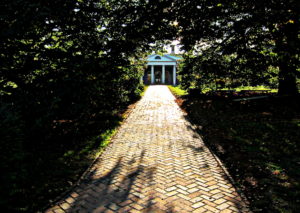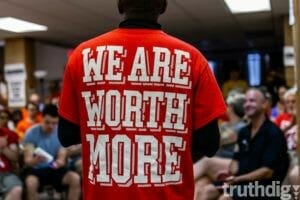Blues Singers Elvie and Geeshie Made Their Musical Marks but Left No Traces
This is the kind of story that sounds like the makings of a stirring indie movie -- and a good mystery, more specifically. Shutterstock
Shutterstock
This is the kind of story that sounds like the makings of a stirring indie movie — and a good mystery, more specifically.
Nearly 85 years after unknown blues singers Elvie Thomas and Geeshie Wiley recorded a handful of game-changing songs, they still remain unknown. Their work has inspired fellow musicians, critics and generations of fans, yet the key details about their identity have eluded scholars and enthusiasts alike.
But, according to John Jeremiah Sullivan in his piece about the musical duo for The New York Times Magazine, the mystery factor only heightens the intrigue surrounding their story — not to mention their influence:
There are musicians as obscure as Wiley and Thomas, and musicians as great, but in none does the Venn diagram of greatness and lostness reveal such vast and bewildering co-extent. In the spring of 1930, in a damp and dimly lit studio, in a small Wisconsin village on the western shore of Lake Michigan, the duo recorded a batch of songs that for more than half a century have been numbered among the masterpieces of prewar American music, in particular two, Elvie’s “Motherless Child Blues” and Geeshie’s “Last Kind Words Blues,” twin Alps of their tiny oeuvre, inspiring essays and novels and films and cover versions, a classical arrangement.
Yet despite more than 50 years of researchers’ efforts to learn who the two women were or where they came from, we have remained ignorant of even their legal names. The sketchy memories of one or two ancient Mississippians, gathered many decades ago, seemed to point to the southern half of that state, yet none led to anything solid. A few people thought they heard hints of Louisiana or Texas in the guitar playing or in the pronunciation of a lyric. We know that the word “Geechee,” with a c, can refer to a person born into the heavily African-inflected Gullah culture centered on the coastal islands off Georgia and the Carolinas. But nothing turned up there either. Or anywhere. No grave site, no photograph. Forget that — no anecdotes. This is what set Geeshie and Elvie apart even from the rest of an innermost group of phantom geniuses of the ’20s and ’30s. Their myth was they didn’t have anything you could so much as hang a myth on.
The online presentation of “The Ballad of Geeshie and Elvie” is also, appropriately, set to music. Check it out in full here.
Your support matters…Independent journalism is under threat and overshadowed by heavily funded mainstream media.
You can help level the playing field. Become a member.
Your tax-deductible contribution keeps us digging beneath the headlines to give you thought-provoking, investigative reporting and analysis that unearths what's really happening- without compromise.
Give today to support our courageous, independent journalists.






You need to be a supporter to comment.
There are currently no responses to this article.
Be the first to respond.